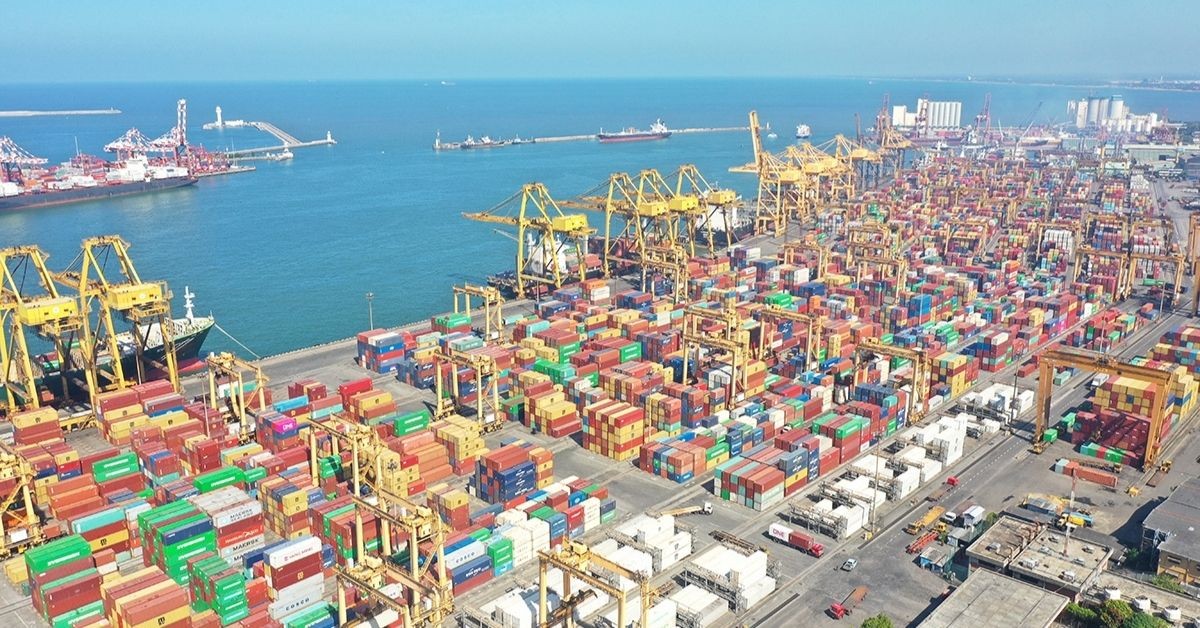Sri Lanka’s Colombo Port City will allow crypto currency trading subject to some limitations, Chairman the governing Commission of the dollarized special investment zone, Saliya Wickremasuriya said.
“We have included digital assets in the asset classes that the Port City will entertain in terms of exchanges in the future,” Wickremasuriya said.
“We expect that will spur a list of other requirements such as settlement banks, correspondent banks.”
There are a few checks and balances in this plan. One of them is that rupee tokens will not be permitted.
“The other is that we will not be allowing initial coin offerings in the first couple of years.”
Amid excessive money printing by conventional state owned reserve currencies in recent years, crypto currencies such as Bitcoin have become popular speculative assets.
Cryptocurrencies through the use of blockchain technology has the potential to settle domestic and cross border contracts seamlessly.
However crypto currencies have so far not come into popular use as denominator currencies for either pricing goods mostly due to excessive price volatility from inappropriate anchors.
Activity in the Port City area itself is to be permitted in multiple currencies with better anchors (mostly inflation targeting clean floating regimes) and it will be protected from the continuous policy errors of the Monetary Board of Sri Lanka which has led to currency collapses, exchange and trade controls.
The US Treasury said on November 01, that the country is planning to allow ‘stable coins’, crypto currencies that are supposed to operate like a currency board (following the anchor of an already accepted currency) and does not have its own anchor.
Such existing stable coins include the Tether.
Sri Lanka also had a currency board (a fixed exchange rate) until 1950 when a Latin America style central bank with a flawed dual anchors were set up with exchange controls, trade controls and then people started to go to work in the middle east and send remittances.
When Sri Lanka had a currency board, the country imported labor and remittances went out.
Stable coins are primarily used to buy other digital assets, but the US Treasury said they could be used as a means of payment by households and businesses.
“Stablecoins that are well-designed and subject to appropriate oversight have the potential to support beneficial payments options,” Secretary of the Treasury Janet L Yellen said.
“But the absence of appropriate oversight presents risks to users and the broader system.
“Current oversight is inconsistent and fragmented, with some stablecoins effectively falling outside the regulatory perimeter.
“Treasury and the agencies involved in this report look forward to working with Members of Congress from both parties on this issue. While Congress considers action, regulators will continue to operate within their mandates to address the risks of these assets.”
Why Sri Lanka’s rupee is depreciating creating currency crises: Bellwether
She said the issuers will be made insured depository institutions to guard against “stable coin runs”.
“To the extent activity related to digital assets falls under the jurisdiction of the Securities and Exchange Commission (SEC) and Commodity Futures Trading Commission (CFTC), the SEC and CFTC have broad enforcement, rulemaking, and oversight authorities that may address certain of these concerns,” the Treasury statement said.
“To prevent misuse of stablecoins and other digital assets by illicit actors, Treasury will continue leading efforts at the Financial Action Task Force (FATF) to encourage countries to implement international AML/CFT standards and pursue additional resources to support supervision of domestic AML/CFT regulations.”
Currently paper fiat money is also used for a range of illicit activities with no electronic trail.
The Board of Commissioners of Currency of Ceylon, Thomas Cooke travelers cheques, American Express Travelers cheques, which also used the currency board principle has never depreciated against the currencies they were anchored to like soft-pegged bank with open market operations.
Source : Economy Next







